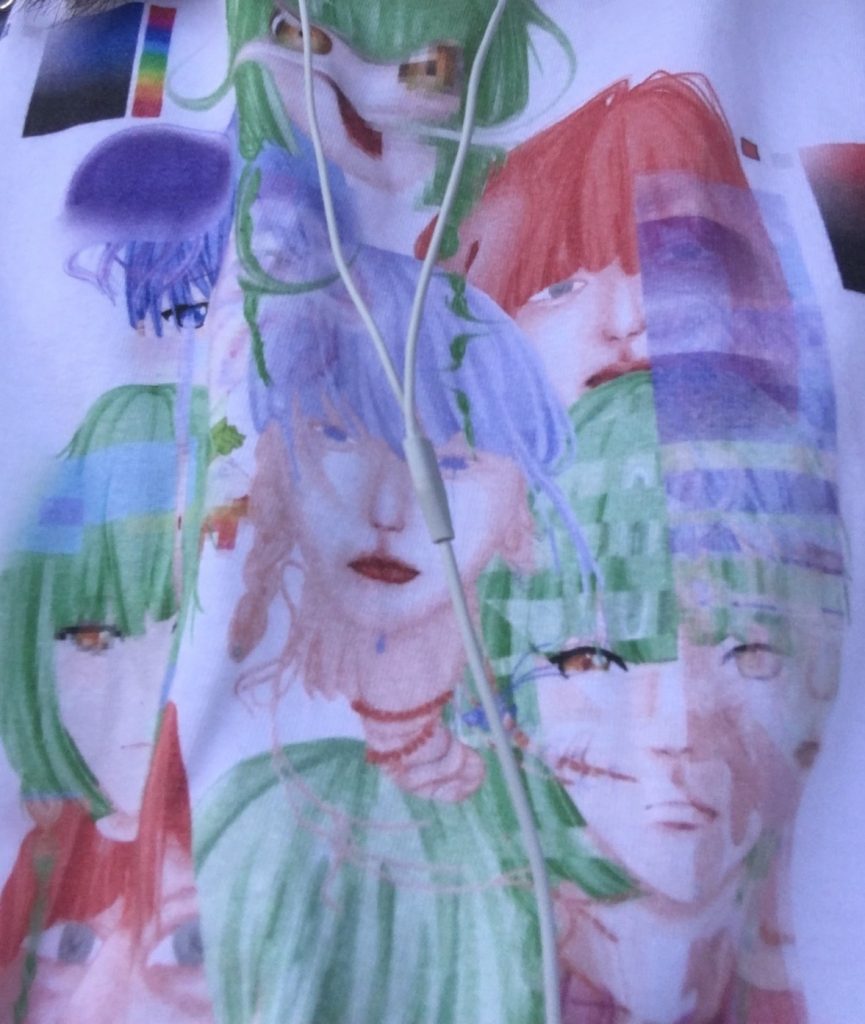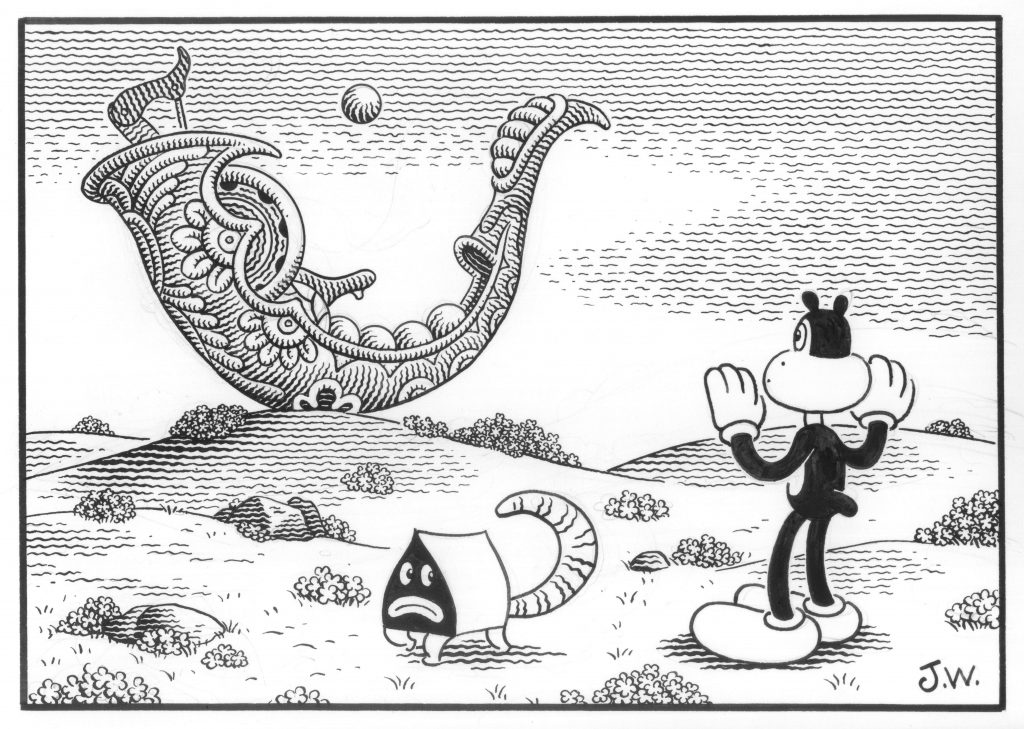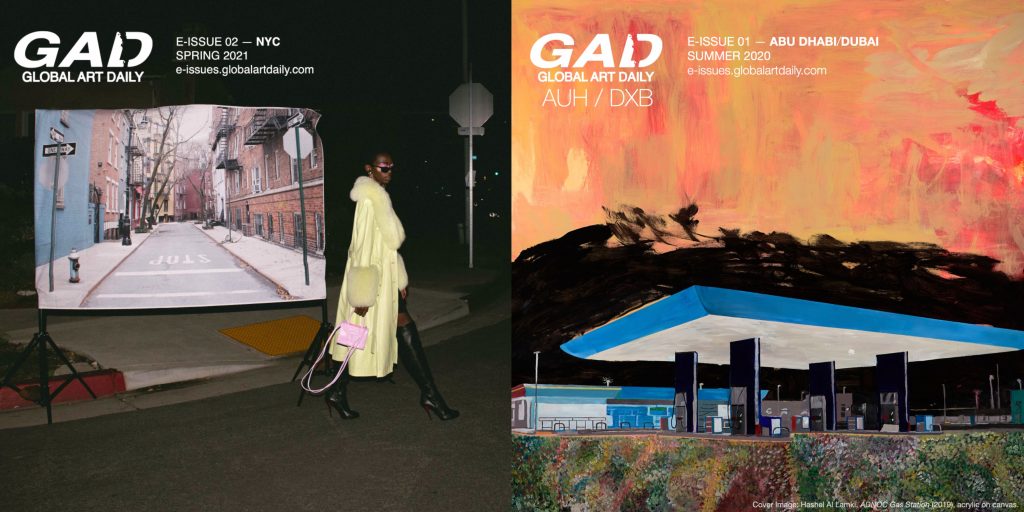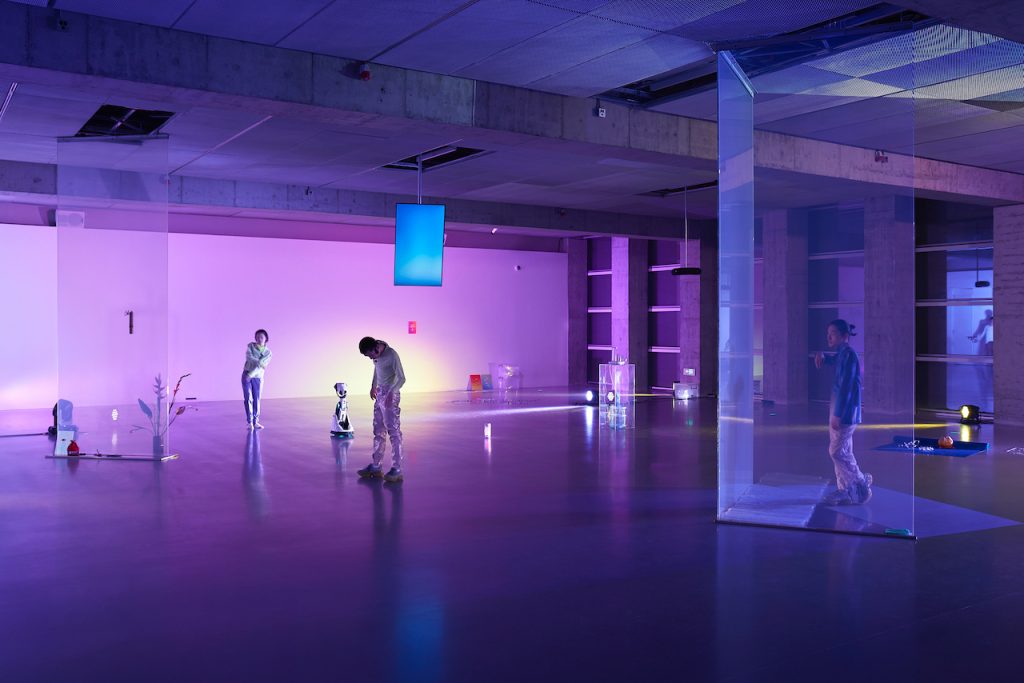Shizuoka-born singer-songwriter Yukichi Kasaku/men, whose low, captivating vocals, melodies and other surprising songwriting elements are a perfect example of an unpredictable personality that doesn’t fit into the usual image of the pop music scene, is suddenly attracting attention. In particular, her songwriting for Dempagumi Inc. starting with “Metaphysical, Magic(形而上学的、魔法)” was a breakthrough. We caught up with her remotely for an interview.
Known for composing with GarageBand, Yukichi Kasaku/men was inspired by her mother’s suggestion.
“I was planning to do a local audition and I thought it would be quicker for me to just dive in than to try and learn an instrument, since I didn’t know much about them at the time. Around that time, my mother suggested using my phone to make music, which was how I found out about Garageband.”
I’ve been composing music since I was in 6th grade or so, and I’ve been playing the piano and writing music since then. I can’t say I can play it particularly well. I didn’t think about sending it out to other people, I just wanted to make something.
My parents aren’t particularly enthusiastic music lovers. In fact, they’ve been listening to it more since I started playing music. You might be surprised by some of the names that have influenced me, as a listener.
I started listening to music seriously when I was in the sixth grade or the first year of junior high school. Before that, I listened to music in my daily life, but I didn’t really love it that much. I listened to various Vocaloids, but part of me was also attracted to the idea of the Vocaloid itself.
I liked to sing, so even in listening to music, I had a strong sense that I was listening for vocals. But when I heard Cornelius’ “Mellow Waves” (2017), when it was released, it was the first time that I wasn’t focuses on the vocals.
Born in 2003, at the age of 14, Yukichi Kasaku/men became interested in Cornelius via the popular ETV program “Design Ah (デザインあ).”
As for songwriting, which maintains a perfect distance from the usual pop music format, her method gradually changed.
In the beginning, I would write the lyrics to the first verse, the second verse, and the last verse, and then I’d add a melody, and then I’d write the second verse according to the number of letters in the melody. Lately I’ve been working on the lyrics, melody and arrangement at the same time, and that way I can create different melodies as the flow of the song progresses. I’d try to make it sound like a chorus or something lively, but it tended to be a chorus or not a chorus, and sometimes the chorus wouldn’t come at all, and I’d just put it all together at the end. Maybe I’m trying to make music in a way that I can just put in whatever comes to mind at the right moment.
She said about her song offering to Denpagumi.inc, which should be called a turning point—“I was contacted by a DM on Twitter. At the beginning of the communication, I didn’t understand that it was a song for Denpagumi, but after listening to the conversation, I realized who it was for. It was a major favorite idol of mine, so I was like, ‘What?!’ I remember that I was crazy surprised. As for “Metaphysical and Magical,” I think the only thing they did was to fix the chorus, and the A and B melody didn’t change much. It’s practically the same one I started with.
Three songs were provided to Denpagumi.inc: “Metaphysical, Magic”, “Moshi Moshi, Internet”, and a solo song by Nagi Nemoto, “Dream to See” (all of which were released in 2020, Ai ga Chikyuu Saves the Earth! (included in “Because Denpagumi.inc is a Family,”). This kind of work has also changed her stance as an artist.
I don’t necessarily feel like I absolutely want to sing, and I don’t feel like I’m sticking to that anymore. I don’t know…. Compared to the early days when I thought singing was the main part of my music career, I think there’s more to my music than just singing.
In addition to her music, she also makes accessories to wear on stage at live shows. Her interest in making things goes beyond music.
I like making things, making things in general. I’m happier when I can make things I like and people use them,” she says. That’s how I got into making music, too. I’m happy to make my own accessories if I’m going to wear them myself, and I love that it’s the only one, an original. (laughs).

I’d like to be able to do as many different things with my own music as possible, whether it’s providing music or collaborating with others, and I’d like to be a person who does a variety of things outside of music as well, rather than just one thing.



